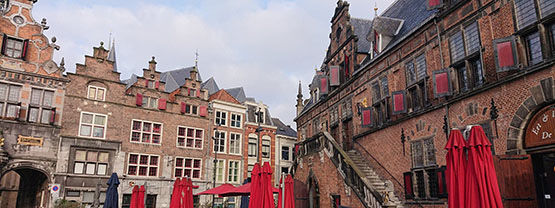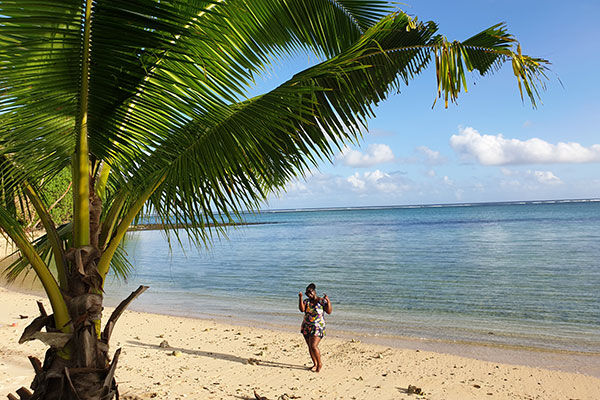Before the Covid pandemic, three staff and five students from our Social Work Department were welcomed to the eighth International Week of the Schools of Health and Social Studies at the Nijmegen campus of HAN University of Applied Sciences in the Netherlands. The theme of the International Week was Challenge Your Borders: Health and Social Work in International Perspective.
Social Work students worked together with staff to develop a workshop which they delivered five times to different groups of students across the few days of the conference. The workshops limited to 25 people so they took it in turns to present. The workshop looked at creativity in assessment and how to move beyond the paperwork often synonymous with social work. The workshops showcased direct work toolkits, which are a starting point for use in engaging young people to open up about difficult situations or feelings they’re dealing with. These are given to our Social Work students when they start their course and really impressed the students who attended as it helped them to question and challenge what it is to assess and how we do this. The workshops even included a role play to show the effect that different approaches to assessment could have on children and young people.
We caught up with the students who went to the Netherlands to find out how the workshops went and what they learnt from the other workshops they were able to attend.
How did you feel about delivering the workshops?
Jess: Before presenting the workshop, I was nervous, especially because the how the workshop went each time would depend on the audience as there was the potential to have a range of different professionals taking part. After I had presented the workshop I felt really proud of myself and more confident for the next time that I would be presenting.
Lottie: Before delivering the presentation I felt nervous and slightly apprehensive. However, once the sessions began, I felt more confident and excited to share the toolkit bags that we use at University for direct work with children with other international students as this is something I feel extremely passionate about. After the sessions I felt grateful for the experience and that we’d achieved our main goal of sharing knowledge about working with children and the tools we can use to engage with them.
Sue: I was very nervous about the presentation and felt unsure how it would be received by the students attending. I felt the first presentation could have gone better but, as the week went on, we adapted to the participants so the presentations went really, my nerves subsided and I really enjoyed it!
Social Work Courses
Find out more about our courses
Have you learnt anything about yourself?
Jess: When I was on the trip I attended a couple of workshops that involved taking part in art therapy. Whilst taking part in these workshops I learnt that I need to be more relaxed and less of a perfectionist! I also surprised myself at how much I enjoyed presenting the workshops and found it a really enjoyable experience.
Lottie: I feel as though I have grown as a person in confidence, and I have learned that I have more of a passion for creative ways of working than I initially thought.
Sue: I think I’ve learnt a lot about myself during the trip and overcome many fears and anxieties. I’ve learnt that, with support, I can do anything I want to. For example, I prefer to fly at night, I’m better at networking than I thought I’d be and I’m able to let other people lead the way.
Were there any standout sessions?
Jess: For me I had two stand-out sessions. The first was a session about art therapy and how it can be used when working with people who have anorexia. This workshop was really interesting and gave me some skills to take away for future practice. It also put me out of my comfort zone when taking part in the creative part of the session.
The second session I really enjoyed was run by a tutor from America. She talked about the US prison system and how inmates’ mental health is affected when they’re incarcerated. This was a really informative session but also highlighted areas of their system which were quite shocking, for example, the rights that inmates lose if they are sentenced. This session also talked about therapy and gave me some skills to use in my future practice.
Lottie: One of the sessions which really stood out for me was the session based around drama therapy and working with people who have eating disorders. This was interesting as I enabled me to see a way in which they are able to separate themselves from the disorder. This was an extremely powerful session.
Sue: The main standout session for me was by a tutor from America who looked at the US prison system and inmates’ mental health. The session reinforced my feelings about prisoners that, although they’ve done the wrong thing, they still deserve to be treated like people. It was an eye opener to learn how long someone could be incarcerated for awaiting trial just because they couldn’t afford bail, that the youngest known prisoner was seven years old and that female prisoners don’t even receive sanitary products, which we would feel is a basic human right. I plan to contact the tutor for more information in future.

What else did you do?
Jess: While on the trip I socialised with the other students on the trip. We spent most evenings eating together and, although we are all on the same course, it was really nice to get to know them better.
Lottie: Throughout the trip as well as presenting to other students and taking part in the workshops, I explored Nijmegen and enjoyed the downtime in the evening to experience the different cultures and to sight-see.
Sue: To be honest, I spent my time going to workshops and then preparing for placement during my downtime so I didn’t see a lot of the city. I did go shopping at the airport though!
Would you recommend this trip to other students?
Jess: I would definitely recommend this trip to other students. As a Social Work student, I gained so much information as well as skills which I’ve taken home with me; it was a really worthwhile trip. It was really interesting to speak to other students from different universities to gain an understanding of their course and how it differs to ours.
Lottie: I would highly recommend this trip to other students and I would advise that students just apply, even if they do not feel confident enough to do it, as this was one of the best experiences I’ve had so far while doing my Social Work degree.
Sue: Definitely! I have overcome so much. I got my first passport as this was my first trip abroad – and I’ve done it as a single mum managing mental health but I would still do it all again tomorrow! I’ve grown as a person and experienced life, study and social work from a different perspective. I’ve spoken to and networked with some amazing people from across 16 different countries. It’s been an amazing experience that, with careful planning and support, anyone and everyone could experience.






